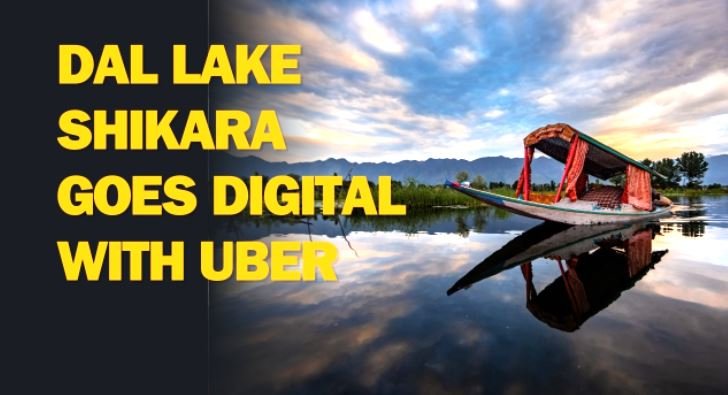The launch of Uber Shikara service on the iconic Dal Lake marks a significant milestone in the intersection of tradition and technology. This pioneering initiative represents a step forward in integrating modern conveniences with the timeless charm of one of Kashmir’s most beloved cultural symbols. Shikara rides, long regarded as a quintessential experience for visitors to the region, now enter the digital age, promising a seamless and memorable journey while contributing to the economic empowerment of local boat operators.
Dal Lake has been synonymous with the serene beauty and rich cultural tapestry of Kashmir. Its shikaras, meticulously crafted wooden boats, have been an enduring attraction for tourists, embodying the soul of the valley. However, the sector has faced challenges ranging from inconsistent pricing to the inability to adapt to the growing demands of a tech-savvy global audience. Uber’s initiative addresses these gaps by offering pre-booking options, government-approved rates, and additional features like trip insurance. These measures not only ensure a standardized experience for visitors but also bring transparency and reliability to the shikara business, benefiting both customers and operators. This innovative service offers significant economic opportunities for shikara owners, many of whom have faced financial struggles due to fluctuating tourism patterns and limited access to wider markets. With Uber’s platform, these operators can now reach a broader audience, secure more bookings, and ensure stable earnings without the complications of commission deductions, as the full fare directly benefits the shikara owners. This model underscores the importance of leveraging technology to empower small-scale entrepreneurs, demonstrating how digital platforms can serve as a catalyst for economic revitalization. The cultural significance of shikaras cannot be understated. For centuries, these boats have been a vital part of life in the Kashmir Valley, serving not only as a means of transport but also as a symbol of the region’s artistic and architectural heritage. By incorporating shikara rides into its digital platform, Uber is helping to preserve this legacy in an era where modernization often leads to the erosion of traditional practices. This initiative showcases how technology can complement rather than compete with heritage, ensuring that age-old traditions continue to thrive in a rapidly changing world. Despite the potential of Uber Shikara to revolutionize tourism in Dal Lake, the initiative has elicited mixed reactions from local stakeholders. While many shikara owners are optimistic about the increased visibility and bookings that the service may bring, others remain skeptical about its impact. Concerns have been raised regarding the extent to which this digital service will affect operators who rely on direct, personal interactions with tourists. Some fear that their established customer base may not see the need for a digital intermediary, while others worry about adapting to the new system. By showcasing Dal Lake and its iconic shikaras on a global platform, Uber is helping to position Kashmir as a premier destination for cultural tourism. This visibility can have a ripple effect on the region’s overall economic development, attracting more visitors and stimulating related industries such as hospitality, handicrafts, and local cuisine. Moreover, the emphasis on standardized pricing and quality control enhances the credibility of Kashmir’s tourism offerings, which is crucial for sustaining long-term growth.
The launch of Uber Shikara represents a convergence of tradition and technology, offering a glimpse into the future of tourism that is both inclusive and innovative. It highlights the potential of digital platforms to enhance cultural experiences, empower local communities, and drive economic growth. As the initiative unfolds, it will undoubtedly face challenges, but it also presents a unique opportunity to redefine how heritage is celebrated and sustained in the modern era.




